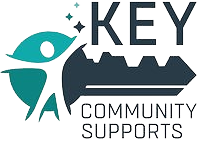NDIS Support Coordination FAQ Answers Supplied Online
At Key Community Services we offer our understanding and knowledge of the NDIS to help individuals navigate their journey. We provide this FAQ page to give answers and make using the NDIS easier for individuals.

Age and Residency Requirements
You may be eligible for the NDIS if you are aged between 0 - 65 years old. You must be an Australian citizen, permanent resident of Australia or be a protected special category visa holder.
Disability Requirement
You may be eligible for the NDIS if you have a disability caused by a permanent impairment. Or you may be eligible for early intervention supports available.
Applying for the NDIS
If you think you meet the above eligibility criteria, you can apply to the NDIS by either making a Verbal Access request by calling 1800 800 110 or completing an access request form. You will also be required to provide further evidence to support your application to the NDIS.
